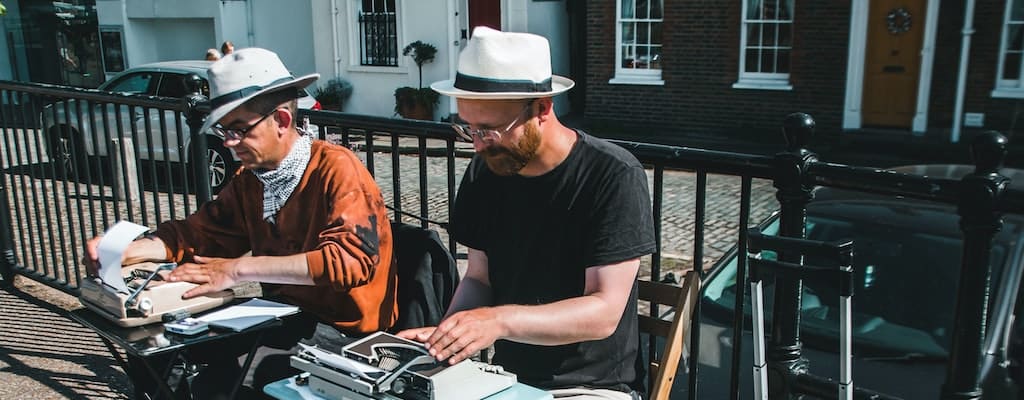streets behind: Idiom Meaning and Origin
What does ‘streets behind’ mean?
The idiom "streets behind" means being significantly behind or lagging behind in terms of knowledge, progress, or understanding compared to others.

Idiom Explorer
The idiom "wet behind the ears" means someone who is young or inexperienced.
The idiom "streets ahead" means to be significantly more advanced or superior to something or someone else. It is often used to describe a person or thing that is far ahead in terms of skills, abilities, or performance.
The idiom "stay behind" means to remain in a place or position after others have left. It implies a deliberate choice to not move forward with others or to stay out of sight for various reasons.
The idiom "stand behind" means to support or be in agreement with something or someone, or to take responsibility for something.
The idiom "put something behind one" means to forget about something that has happened in the past and move on, leaving it behind emotionally and mentally.
The idiom "pull ahead" means to move forward or make progress in a competition or race. It signifies gaining an advantage or surpassing others in the pursuit of a particular goal or objective.
The idiom *lose ground* means to fall behind or experience a decline in progress or success.
The idiom "keep off the streets" means to stay indoors or avoid going outside, often because of dangerous or unsafe conditions on public roads or in the surrounding area.
The idiom "fall behind" means to fail to keep up with someone or something, usually in terms of progress or a schedule.
The idiom "dry behind the ears" means someone is still young or inexperienced.
Unraveling the Mystery
streets ahead is another idiomatic phrase that is closely related to streets behind. While streets behind means to be far behind or out of touch with the latest trends, streets ahead means the opposite. It means to be far ahead or ahead of others in terms of knowledge, understanding, or progress.
The idiom streets ahead is used to describe individuals or things that are significantly more advanced, innovative, or superior compared to others. It implies that the person or thing being described is leading the way and is ahead of the competition or the current state of affairs.
The origin of streets ahead, like streets behind, is not well-documented. However, just like streets behind, it is believed to have developed as a metaphorical expression in the late 20th century to convey the concept of being ahead of others in a competitive or cultural sense.
Similar to streets behind, streets ahead gained popularity through its use in popular culture and media. It has been used in television shows, movies, and literature to emphasize the superiority or advanced state of something or someone compared to others.
Streets ahead is commonly used in conversations, informal discussions or debates, and in casual writing. It is a phrase used to highlight and praise individuals, ideas, or things that are considered to be cutting-edge, innovative, and progressive.
Like streets behind, streets ahead can also be used negatively, particularly when used to belittle or mock someone or something that is perceived as being far less progressive or advanced compared to others. However, it is more commonly used in a positive and complimentary manner.
The idiom streets ahead is a vivid expression that effectively conveys the idea of being ahead or far superior to others. It is widely used in American English as well as in other English-speaking countries to describe individuals or things that are at the forefront of their field, industry, or area of expertise.
behind the times is another popular idiom that is related to streets behind. While streets behind focuses on being far behind or out of touch with the latest trends, behind the times conveys a similar meaning but with a slightly different nuance.
Behind the times means to be outdated or behind current events, fashions, or technology. It implies a lack of awareness or knowledge about recent developments or trends. It is often used to describe individuals or things that are not keeping up with the rapid pace of change in society.
The idiom behind the times originated in the late 19th century and has since become well-established in the English language. It is used in both formal and informal contexts to describe individuals, ideas, or things that are seen as old-fashioned, obsolete, or outmoded.
Similar to streets behind, behind the times can be used playfully or teasingly to describe someone who is slow to adapt to new ideas or technology. However, it can also be used in a more critical or disdainful manner to criticize someone or something that is perceived as being out of touch or resistant to change.
The idiom behind the times is a powerful expression that effectively conveys the notion of being outdated or out of touch. It is widely used to describe individuals, ideas, or things that are lagging behind the advancements and progress of the modern world.
Streets behind is an idiomatic phrase that means to be far behind or out of touch with the latest trends, ideas, or developments. Its counterpart, streets ahead, means the opposite - to be far ahead or ahead of others in terms of knowledge, understanding, or progress. Behind the times is a related idiom that conveys a similar meaning but with a focus on being outdated or behind current events, fashions, or technology. These idioms provide colorful and expressive ways to describe the state of being behind or ahead in various aspects of life. Their usage has become well-established in American English and is commonly used in both informal and formal contexts.
Example usage
Examples of how the idiom *streets behind* can be used in a sentence:
- After watching the new superhero movie, I realized that the special effects in my favorite childhood action film were streets behind.
- John always brags about how good he is at video games, but compared to the professional gamers, he is streets behind.
- Even though he claims to be an expert photographer, his skills are still streets behind the level of professional photographers.
More "Slang" idioms



